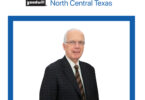3 Actionable Tips
Millennials—the generation rapidly changing the way we eat, work, exercise, shop, and now, the way we give. Characterized as the generation born between 1980 and 2000, millennials today range from the ages 18 to 38. With millennials now making up the largest portion of the population, it is imperative that nonprofits begin engaging and securing them as donors. But despite making up more than a quarter of the population, millennials account for only 11% of charitable giving.
According to Blackbaud’s Next Generation of American Giving study, only 25% of millennials believe that monetary giving is the best way to make a difference with charitable organizations. That’s because millennials gain more of a sense of purpose when they directly participate with a cause or organization. Instead of seeing this as a roadblock to millennials becoming meaningful donors, use it to your advantage and look at it as a stepping stone. Use participation and involvement to build valuable relationships. The more invested millennials feel in your organization, the more willing they will be to give their time and money—both now and down the road.
By creating ways for millennials to directly interact with your organization, you help them cultivate passion for your cause. And good news! Many millennials are at a point in their lives where they are searching for causes to latch onto and mold a part of their identity around.
Here’s 3 ways to cultivate that type of involvement:
- Start a campus chapter program. Campus chapters are a great way to get college students centered around your cause and bought into your organization at an early age. They also serve as (essentially) free promoters of and fundraisers for your organization. Starting a campus chapter program doesn’t have to be difficult either:
- Put someone in your organization in charge of overseeing campus chapters (this will look different depending on the size of your organization and how widespread your chapters are).
- Create a “Campus Chapter Toolkit”. Take a look at Habitat for Humanity’s tool kit.
- Encourage students who contact you for internships and volunteer opportunities to start a chapter on their campus.
- Host educational workshops. Educating prospective donors is critical into priming them to donate. Take a Saturday morning or a weeknight to host members of your community and educate them on the problem your organization is addressing. Provide snacks and refreshments. Don’t make it about how they can help—make it about who or what needs help. Only spend a few minutes at the end of your workshop or session on a call to action. Participants want to feel educated, not solicited.
- Create volunteer opportunities. This almost goes without saying. Volunteer opportunities are a gold mine for millennials, many of whom are seeking a direct experience and connection with the cause your organization supports. Both campus chapters and educational workshops are great lead in to have people sign up for volunteer opportunities.
**Extra Tip: Reach out to professors or teachers in the area and ask them to offer extra credit for their students who attend your workshop.
Want to learn more actionable tips to engage and acquire millennials as donors for your organization? Check out Turning Millennials Into Donors: The Definitive Guide.
ABOUT THE AUTHOR

Laura Soundy is a Lead Associate at Flourish Technologies.
Flourish Change is a micro-donation and donor analytics platform that helps nonprofits maximize their fundraising. Our app allows users to round up their electronic spare change from their debit and credit card transactions and give it to the nonprofit that they choose. Users also have the ability to give daily donations as small as $0.30. Nonprofits that partner with Flourish can put forward specific projects for their donors to support and can keep them up to date through a current news feed. The platform also offers donor analytics and relationship tools for nonprofits to directly communicate with their micro-donors.









